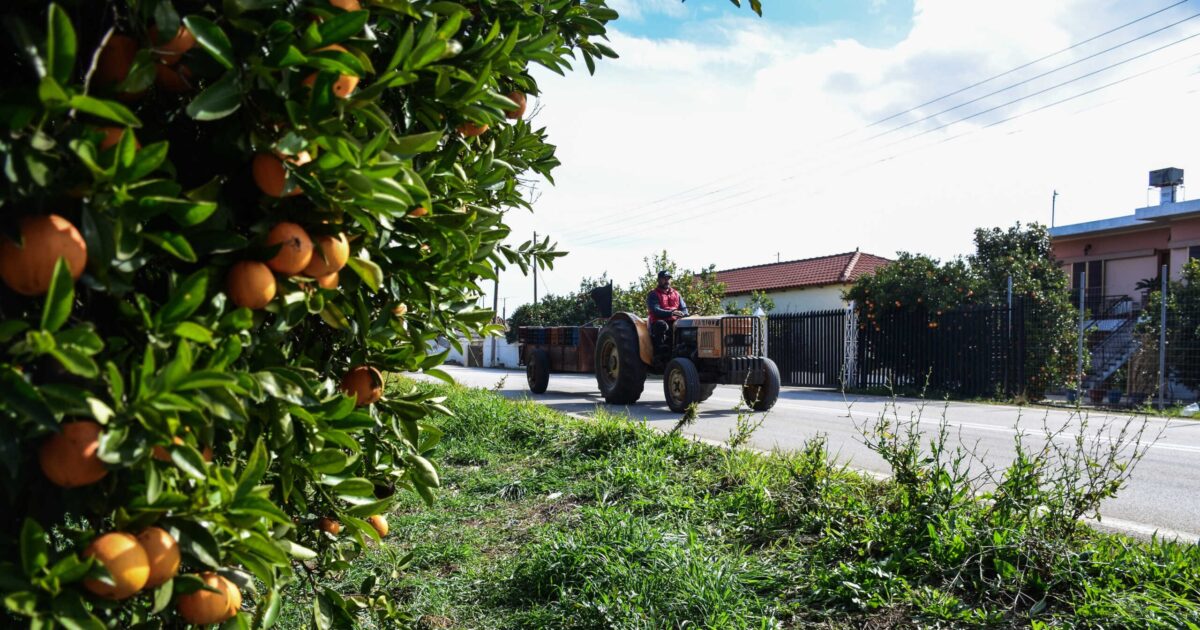In the protection of the primary sector by activating new tools as well as the utilization of European and national resources, the Ministry of Rural Development and Food is proceeding (YPATA), in an attempt to strengthen the farm income.
The impact of the climate crisis are more and more obvious, with damage increasing and resulting in greater losses in Greek producers’ crops and therefore on their income. The political leadership of the Ministry of Environment and Physical Planning has made its main priority to support agricultural income, with the aim of not only relieving affected weather events, but also enhancing the perspective of farmer and farmer’s professions in order to remain attractive to younger generations.
“Protection of agricultural income is one of our key priorities,” Deputy Minister of Rural Development and Food, Dionysis Stamenitis, told RES-EIA, stressing that “since 2019 the governments of the New Democracy and Kyriakos Mitsotakis, or by permanent measures such as It gives powerful writing samples in this direction. “
Measure 23: Liquidity for those affected by natural disasters
One of the most recent steps in this direction is the activation of Measure 23, entitled “Extraordinary Temporary Freation Support for Farmers, affected by natural disasters after January 1, 2024”. The measure was approved by the European Commission and its purpose is to immediately address the liquidity difficulties faced by farmers, due to natural disaster, or directly in their income from reducing production.
It is co -financed in the context of the RDP 2014 – 2022 and will assist Greek producers to address adverse climate change phenomena through approximately € 143 million, while the total amount to be distributed will amount to a total of approximately € 178 million including national participation.
As the Deputy Minister of Rural Development and Food, Dionysis Stamenitis, explained, this is the first time that resources have been used by the Strategic Plan of the new Common Agricultural Policy (CAP) to immediately strengthen producers facing the effects of natural disasters. “The case of Measure 23 is yet another proof that we do not sit in the face of the issues that arise we do not sit with our hands crossed, but we are looking for solutions and utilizing our resources available and our financial tools,” he told RES-EIA.
The support will take the form of a lump sum, by lump sum, with beneficiaries of active farmers who fulfill specific eligibility criteria such as being registered with the register of farmers and farmers (MAAEs), have suffered a destruction of at least 30% of the relevant potential/production.
Ad hoc allowances to apple producers – € 16 million in 9 regional sections
In addition to Measure 23, the Ministry of Environment and Physical Planning also proceeded with the preparation of a special program (AD HOC) for the compensation of the apples affected by extreme weather in 2024 and whose damage was not covered by ELGA. Specifically, on May 30, 2025, ELGA paid € 16m to producers of the regional units of Arcadia, Achaia, Grevena, Imathia, Kastoria, Kozani, Corinth, Pella and Florina.
This program was designed with speed and flexibility, filling a significant gap in the insurance of farms, which, as Mr Stamenitis notes, proves the government’s willingness to intervene in practice, even when the current institutional framework is not sufficient.
Finally, as he pointed out, the big bet for the primary sector is its modernization, in which the people of primary production should be held up until it is completed.
“At the same time, of course, with the initiatives to support producers’ income and since traditional tools cannot provide answers to the modern challenges that agriculture confronts, we are implementing a comprehensive strategy that promotes innovation, and promotes its innovation strategy, Works of agricultural infrastructure, ”the deputy minister concluded.
